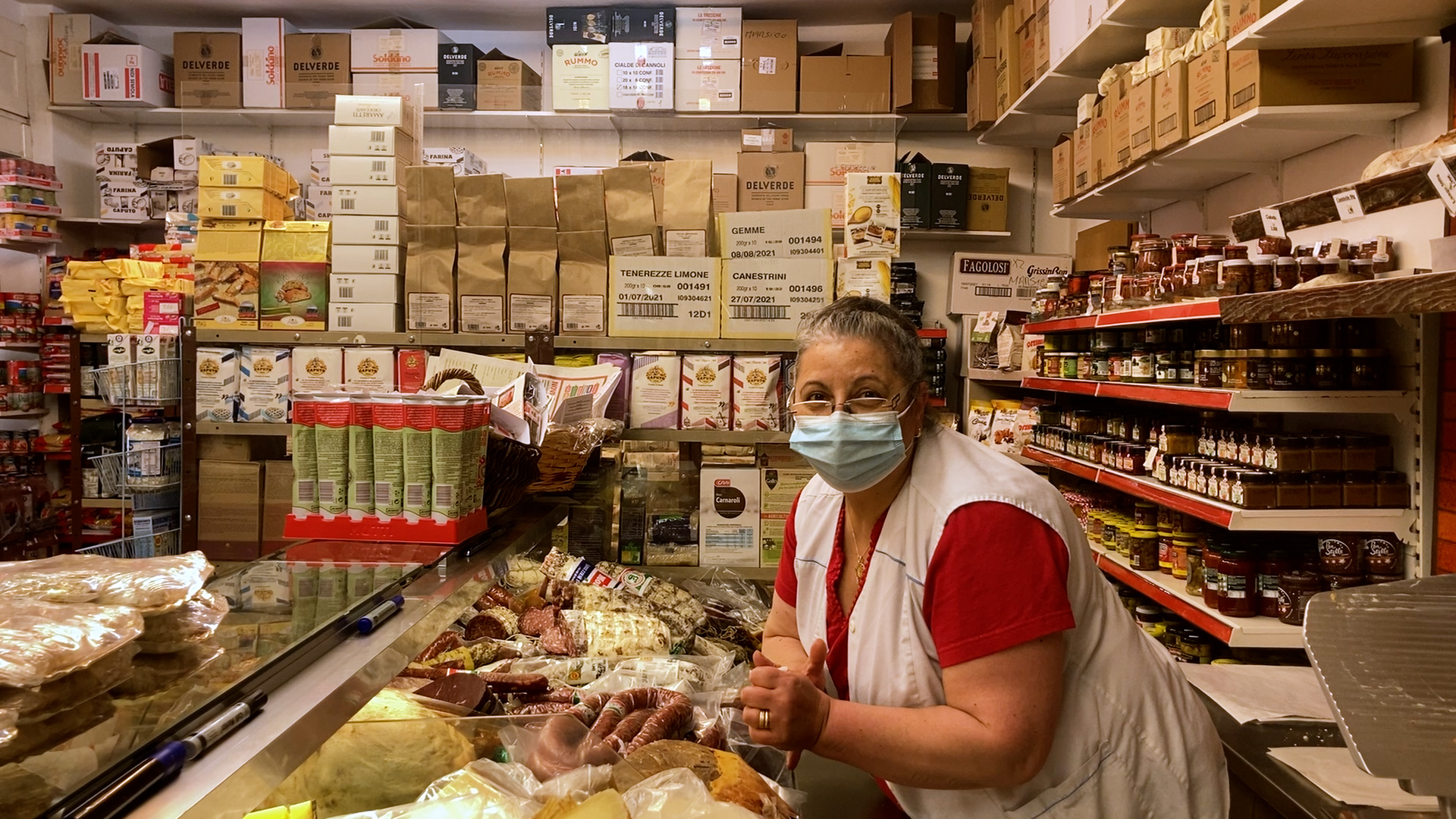Rosaria
“To belong you have to learn the language.”

A small shop in the middle of Mainz. Once you enter through the glass doors, you leave Germany behind and find yourself somewhere in Italy. The space is packed with delicious cheese, pasta, wine and bread. Behind the counter, Rosaria is organizing the displayed food. Since opening the shop in 1989, she continuously expanded the selection of italian specialties. The native Calabrian feels at home in Mainz and thinks that immigration can enrich a country – if it is properly regulated by the government. And if the immigrants’ desire to fully integrate is strong enough.
In your opinion, is immigration beneficial for a country?
I think it is, I am convinced of it, there are many people who can do something for a country. We have so many foreign doctors, if we didn’t have them we wouldn’t have doctors in the university hospital in Mainz. Or other professions. Of course it is an enrichment, there are people who come, there are people who leave. But we have to see who comes. You can’t let just anyone in. That sounds harsh: You have a pot, there’s food in it for ten people, and you want to feed 100 people. That doesn’t work. So you take care of the ten people first, if there’s anything left over then you help the others. But at the moment I don’t think it’s distributed properly. Because at the moment they are just taking from the pot that we have and paying for things and people are wondering what for? That’s probably why there’s this unrest and resentment. Because I don’t think people have anything against other cultures.
Do you think, of yourself and in general, that migrants find it easy to integrate into the German culture?
When we arrived back then, we didn’t get any immigration or integration training or were sent to school to learn the language. We did that on our own, because we wanted to belong. And to belong you have to learn the language. It’s one thing to have someone translate what’s being said to you, but it’s a completely different thing when you hear and understand it yourself. To make such an effort to integrate. I think many don’t want to do that. Not all of them, of course. Some have also learned the language incredibly well, got a good job. But because they wanted to. Many are too comfortable for that, I think. When we came, I didn’t take a language course. I read a lot, listened, asked “What does the word mean?” and then wrote it down. It took a long time, but I don’t regret it, because by understanding what people say, I understand the tone. And especially how something is said. If you don’t know the language, you misunderstand a lot.
“It’s one thing to have someone translate what’s being said to you, but it’s a completely different thing when you hear and understand it yourself.”
What are you afraid of?
I am afraid of this hatred that arises. It’s becoming more and more and more. And of the fact that through the hatred, decisions are made that are simply not good. I mean we have experienced that. How it is, when hate arises also always when the person is dissatisfied, when the job is no longer there, the money is no longer there, life becomes expensive. Then hatred arises. You always look for someone: “Ah, it’s his fault that I have a problem.” Whereas that’s not true. Because it’s not the people that come who are the problem, it’s the people who make the decisions up there. But this hatred that I feel at the moment, it frightens me, I say that honestly. Also, people have become selfish. They want more and more, instead of being satisfied with what they have, what is enough for you. I wish that this would change. That people don’t pay so much attention to material things. But well, I’m old school.
